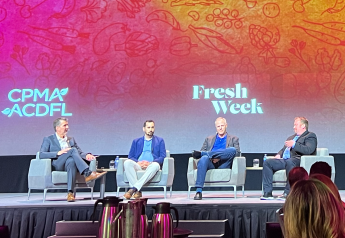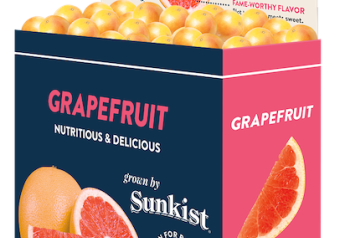Chlorpyrifos ban shows need for greater access to fresh produce production and R&D tools

EPA’s decision to phase out chlorpyrifos was hardly a surprise to most of us. States where much of fresh produce is grown already restrict or ban its use, and Corteva discontinued its production over a year ago. While some consumer-facing media outlets created quite a stir around EPA’s announcement, it was hardly more than a punctuation mark at the end of the story of this decades-old insecticide.
This column, however, is not really about chlorpyrifos. Nor is it an attempt to re-litigate the argument about the role of pesticides in agriculture. It is about access to the tools of production and R&D for our industry.
Agricultural chemistry and biotechnology are tools of conventional and organic production, just as tractors and harvesters are. The Produce Marketing Association has been steadfast in defending the right of producers to have access to the broadest toolkit to grow and ship fruits, vegetables and florals, and do it safely, economically, and with utmost respect for the people, the land, the environment and the bottom line. Every time a tool of production is taken away and not replaced with a better alternative, it has negative consequences.
It is time that the Congress matched empowerment of regulatory agencies with a robust investment into agricultural R&D. Chlopyrifos has been on the market for over 40 years, neonics for over three decades. It is uncertain whether the brightest of spotlights now on neonics (currently one of the safest insecticides with the narrowest off-target impact) will result in a restriction of their use.
Alarmingly, there is no new chemistry in the R&D pipeline. Federal investment into agricultural R&D is woefully inadequate and is at most 1/1,000 of what is invested by the federal government into biomedical research. Biomedical and pharmaceutical industries have benefited (directly and indirectly) from this investment, while agriculture was expected to shoulder the burden of R&D essentially alone. This has to change!
As the Biden administration invests in carbon sequestration to mitigate consequences of climate change, it is critical that the decision-makers and also consumers are clear-eyed about the promise and the inputs required for regenerative and climate-smart agriculture. Climate-smart agriculture requires tools: biotechnology, next-generation agricultural chemistry (for conventional and organic growers), investment into AI and precision agriculture, just to name a few.
Every time a tool of production is taken away and not replaced with something better, the path to feeding our hungry, warming and nutritionally-insecure planet gets more circuitous.
Max Teplitski is chief science officer for the Produce Marketing Association. Find more of his columns here.







